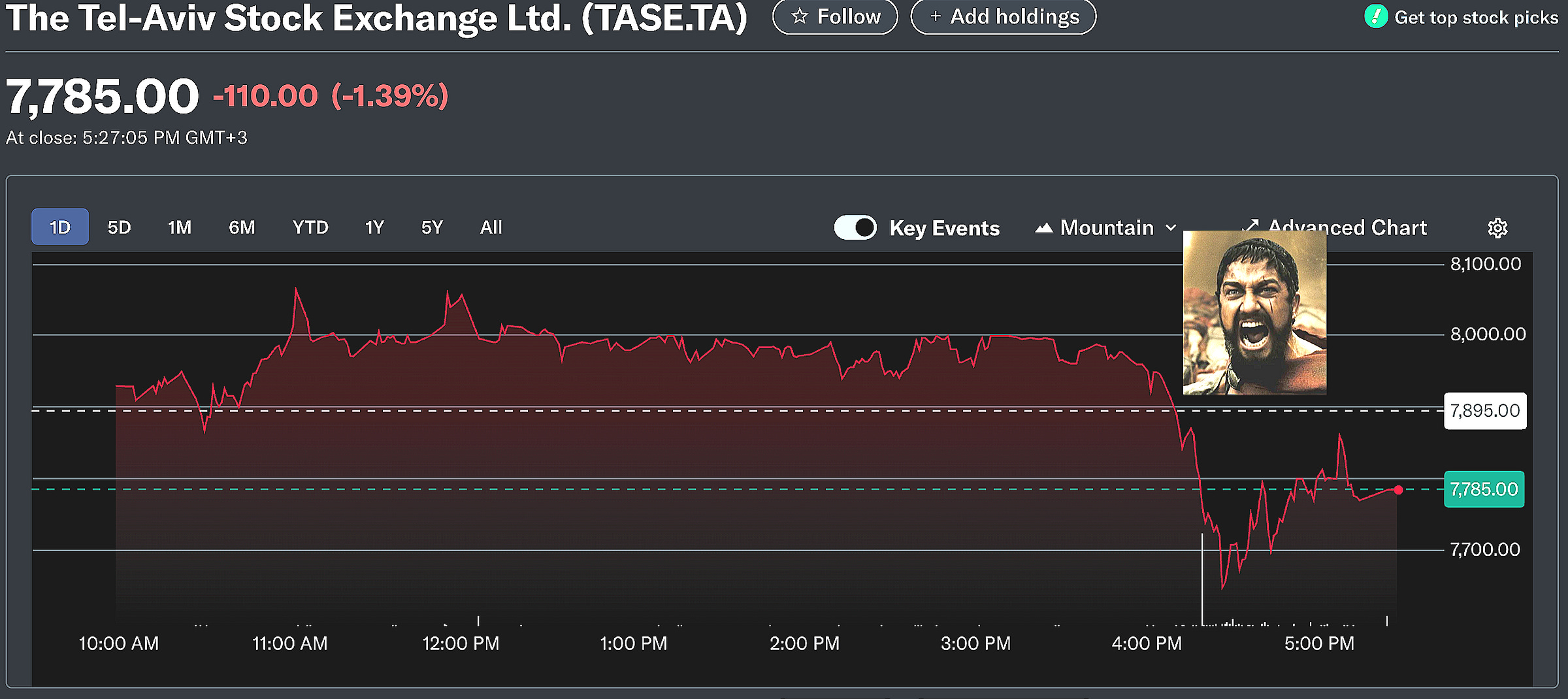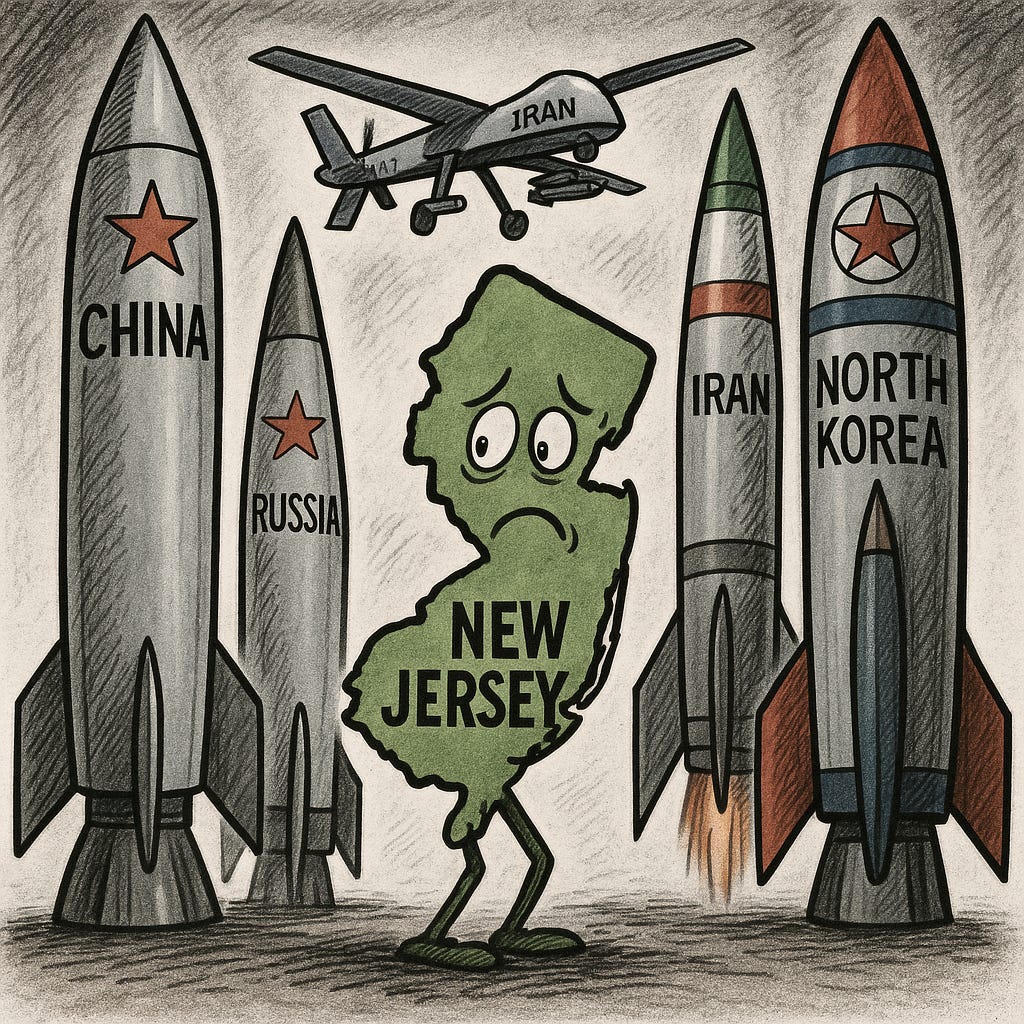Netanyahu's Autarky Malarkey
For a nation that imports oil but exports algorithms, economic isolation is not an option.
Welcome to Israel Tech Insider. I’m Amir Mizroch, a tech communications advisor and former EMEA Tech Editor at The Wall Street Journal. This newsletter is about connecting the dots to give you a sharp, insider’s take on what’s really going on in Israel’s tech economy.
As always, feedback to amir@israeltechinsider.com
"We're going to be Athens. And Super-Sparta." --Benjamin Netanyahu, son of a historian, 15 September 2025.
Ancient Sparta dominated Greece for centuries through military excellence and a rigid economic model that prized self-sufficiency, a proto-Autarky. Warrior-citizens, when not actually fighting wars, trained for war; helots—state-dependent serfs—worked the land; perioikoi, free non-citizens, handled craft and trade. That system produced formidable soldiers and a mighty regional hegemon. But it also bred brittleness. When Theban general Epaminondas smashed the myth of Spartan invincibility at Leuctra in 371 BCE, Sparta could not adapt; within decades, it had slipped from hegemony to the margins. Collapse followed.
Benjamin Netanyahu, the son of a historian, invoked a version of this history on Monday, telling the Accountant General’s Conference that Israel may need to become “Athens and super-Sparta” and “adapt to an autarkic economy” amid rising diplomatic isolation in Europe. He linked that isolation to “unrestricted migration of significant and very militant minorities,” and said Israel must prepare to produce and procure more at home. Although his office later broadcast two rapid-fire clarifications—the prime minister only meant autarky in the defense industrial base— the markets reacted badly.
It’s unclear if Netanyahu was presenting to the accountants in the auditorium Israel’s new non-GAAP fiscal measures (Generally Accepted Autarky Practices), or whether he was giving a convoluted, pseudo-historic lecture cooked up on one of his recent tech-bro podcast appearances. Either way, he made the claim in a room full of accountants. But the numbers don’t add up. A brief look at Super-Sparta’s financials shows why.
Israel imports far more goods than it exports — creating a large deficit in tangible items like oil, machinery, and raw materials. But its trade in services more than makes up for the gap. Israel exports around US$86 billion in services and imports about US$45 billion, which leads to a net surplus when you combine goods and services. In fact, exports of goods + services are about 31.9% of GDP, versus imports of 28.6%, producing a modest overall trade surplus of roughly 3-4% of GDP (mostly made up of 0’s and 1’s).
Israeli engineers design software for European banks, provide cybersecurity for American corporations, and develop algorithms for global markets—intellectual property that travels instantly across continents without requiring ships or trucks. Autarky would sever these electronic lifelines, forcing Israel to abandon its comparative advantage in high-value services while attempting to produce low-value physical goods domestically.
Energy is the hard stop. Israel is self-sufficient in natural gas, but imports essentially 100% of crude oil—about 200–250,000 barrels a day in 2022. Renewables are rising but modest: 2024 saw ~15% of electricity from solar, with gas ~70% and coal in the teens.
Food is similar. Israel imports about half its supply, especially staples: ~80–90% of wheat and most fish. The result: a persistent agri-food trade deficit of $6–7B. Autarky would mean replacing those flows in a country where agriculture has already been hit by war and a labor exodus since October 7
Manufacturing inputs aren’t any easier to secure. Turkey has suspended trade with Israel, cutting off imports of industrial goods like metals, cement, and machinery. Meanwhile, attacks in the Red Sea have disrupted shipping routes, forcing longer journeys and driving up freight costs. Israel depends heavily on sea routes for most of its food imports because overland alternatives are limited. Autarkic policies would make these vulnerabilities worse—because there’s no way to manufacture everything domestically, especially raw materials like copper or rare earths.
Netanyahu’s vision would shatter the institutions that sustain Israeli prosperity. Israel participates in virtually every pillar of the global economy: OECD, WTO, WIPO, IMF, World Bank, ITU. These memberships secure IP protections, trade rules, and R&D partnerships. Autarky would mean abandoning them—strategic self-immolation disguised as independence.
You can’t improvise a defense-industrial base
Israel’s defense exports hit a record US$14.7-15 billion in 2024 — up about 13% from 2023 — driven largely by missiles, rockets, and air-defense systems, which made up roughly 48% of export volume. Over half of its defense contracts were with European nations (~54%), with Asia-Pacific and the United States making up smaller shares. Yet Israel faces growing diplomatic and commercial pressure: some European governments are suspending arms deals, trade shows are banning or restricting Israeli firms (e.g. bans in Paris, constraints at DSEI), and several countries have imposed embargoes or halted military exports in protest over its conduct in Gaza. This is why strategic autonomy in armaments is prudent, but autarky goes too far.
Programs like Arrow and David’s Sling rely on U.S.–Israeli co-production and multinational supply chains; production lines depend on imported energy, alloys, electronics, and propellants; and exports fund R&D. Cut Israel off from markets and inputs, and you starve the very complex you want to scale.
This is more than “just” mass manufacturing tanks, bullets, shells, ceramic vests, lasers, manned warplanes, unmanned warplanes, robot dogs, mosquito spies and Mossad dolphins in factories that don’t exist yet. Even if/when these factories are built, good luck keeping them all supplied and protected in a country the size of New Jersey surrounded by enemy missiles and drones.
Autarky’s Murky Record
The Spartan model held only while fresh conquests provided fields for farming and a subjugated workforce (the Spartans were not nice people). When they started losing wars, the base cracked. By the time of Alexander the Great, Sparta was a spent force. The analogy to modern Israel is limited, but the core lesson remains the same: a closed system is brittle. Small, trade-dependent states that tried “go-it-alone” fare poorly.
North Korea proves the point. Despite sharing identical starting conditions with South Korea in 1945, the hermit kingdom's self-imposed isolation has produced an economy worth just $27.86 billion, or just 1.7% that of South Korea's. The human toll is equally stark: 40% of the population remains undernourished, electricity blackouts plague everything beyond Pyongyang, and economic growth has averaged just 1.4% annually since 2000—barely keeping pace with population increases.
There is no credible model for Israeli autarky because the premise is unrealistic.
Super-Sparta Would Stifle Startup Nation
Israel's tech sector—the country's economic engine—faces a crisis that autarky would turn into catastrophe. Since October 7th, tech companies hace lost over 8,500 employees to emigration, while 30% cite military call-ups as their primary challenge. Projects stall, deadlines slip, and some soldiers return from duty to find their jobs gone. A "Yad Labanim" study found that 34% of first-degree relatives of fallen soldiers from the war have not returned to work. This isn't the brief conflicts that Israeli tech previously shrugged off—it's sustained bleeding of the talent that keeps the economy alive.
Netanyahu’s vision would finish what judicial reform and war started. Israeli tech thrives on global sales: 75% of $12B in 2024 startup funding came from foreign investors; exports worth $73.5B need global markets. Cutting lifelines would kill the sector. It’s already happening: nearly half of new startups (46%) are choosing to incorporate outside of Israel. In 2022, 80% of startups incorporated in Israel.
Israel cannot afford to destroy its cash cow in wartime. The country has already spent $87B fighting, debt has passed 70% of GDP, and growth crawled to 1%. Tech exports pay the bills.
The verdict
Sparta’s autarky produced military power but fatal fragility. Israel’s open, services-heavy economy wins by integration, not isolation. “Super-Sparta” is a slogan, not a strategy. Strategic autonomy in choke points like armaments and semiconductors is prudent; autarky is folly dressed up as stoicism.
It’s also important to note that while Israel may need to become an autarkic Sparta to survive international isolation, it cannot do so while its prime minister exempts the ultra-Orthodox—the fastest-growing demographic—from military service, taxation, and secular education, creating an unsustainable economy where those who refuse to fight, work, or learn modern skills are subsidized by those who do. Netanyahu compounds the strain with bloated ministries that serve coalition politics, not national resilience.
Netanyahu has conjured the perfect trap. His judicial overhaul triggered the brain drain, his war policies are decimating the workforce and international connectivity, and his coalition politics protect the ultra-Orthodox from contributing to either military service or economic productivity. Having engineered the crisis through political choices, he now prescribes autarky as the cure—the surest way to destroy what remains of Israeli prosperity. Sparta fell because it couldn’t adapt. Israel risks the same if it mistakes slogans for strategy.




